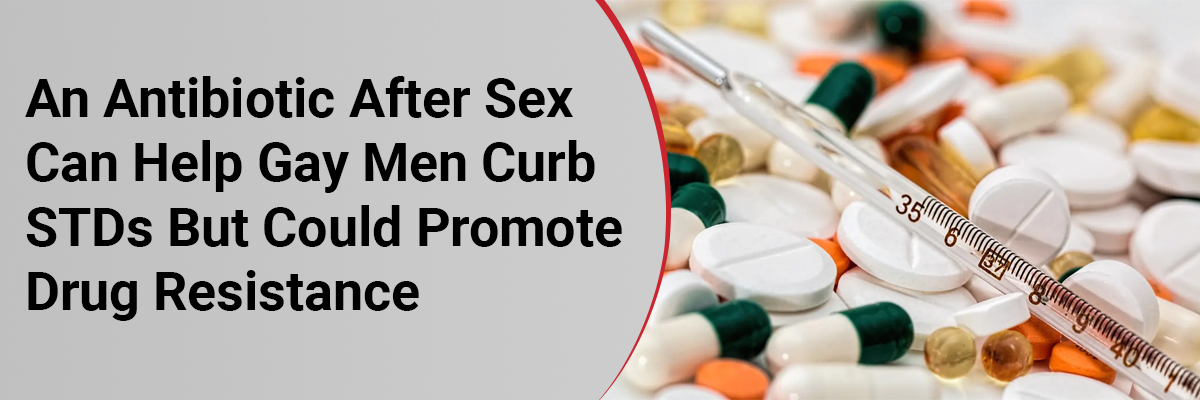
 IJCP Editorial Team
IJCP Editorial Team
An Antibiotic After Sex Can Help Gay Men Curb STDs But Could Promote Drug Resistance
Research
shows that taking doxycycline after sex can help curb STDs; however, there
remains an uncertainty that such intervention could boost drug-resistant
pathogens.
With
the emerging cases of the sexually transmitted disease, a broadening chorus of
public health experts is reaching for the Centers for Disease Control and
Prevention to support prescribing a preventive antibiotic pill to gay, bisexual
men and transgender women who are at high risk of STDs. While a growing body of
research indicates that taking doxycycline after sex markedly slower STD
infection rates in this population (sparing cisgender women), , some experts
have the view that widespread use of the antibiotic for this purpose could
render more harm than good by fuelling the global crisis of
antibiotic-resistant infections and damaging people's microbiomes.
The yearly Conference on Retroviruses and Opportunistic Infections held on Sunday in Seattle discussed all the new findings from several doxycycline studies for STD prevention. It included a third randomized trial that revealed that instructing gay and bi men to consume the antibiotic within 72 hours of unprotected sex (a protocol called doxycycline post-exposure prophylaxis, or doxyPEP) can reduce the bacterial STDs risk. This new study, executed in France, randomized about 500 gay and bi men and discovered that doxycycline diminished the rates of gonorrhoea, chlamydia, and syphilis by 51% to 89%.
Another
study, executed in Seattle and San Francisco and presented at a July
conference, witnessed an overall two-thirds reduction in STDs among gay and bi
men and trans women.
Michael
Traeger, a research fellow at Harvard Medical School, offered a modeling study
at the Seattle conference in which he and his colleagues examined patient data
at the LGBTQ-focused clinic Fenway Health in Boston and recognized what they
described as an efficient prescribing strategy to minimize antibiotic use while
maximizing impact. He said, '' Administering doxyPEP for 12 months to gay and
bi men who had recently had an STD, can potentially prevent up to 42% of
subsequent STDs in the overall patient population''.
Countering
the drug-resistant perception, another important study in one of the other
major doxyPEP trials, revealed that there was no significant increase in
doxycycline resistance among three key bacteria, including gonorrhoea and
staph. However, it may not resolve the ongoing debate on the matter as Some
infectious disease experts are still concerned that doxyPEP adoption could
boost drug-resistant pathogens, especially staph.
Regarding its clinical implications, Dr. Leandro Mena, the CDC's
director of STD prevention, stated that ''the agency has already started laying
the groundwork for potentially establishing doxyPEP guidelines''. He further
declared that the future advancements are expected once the Seattle-San
Francisco study is published, presumably by spring. He ensured that CDC is
evaluating the intervention's safety, deducing "which populations can
benefit the most," and addressing equity concerns.

IJCP Editorial Team
Comprising seasoned professionals and experts from the medical field, the IJCP editorial team is dedicated to delivering timely and accurate content and thriving to provide attention-grabbing information for the readers. What sets them apart are their diverse expertise, spanning academia, research, and clinical practice, and their dedication to upholding the highest standards of quality and integrity. With a wealth of experience and a commitment to excellence, the IJCP editorial team strives to provide valuable perspectives, the latest trends, and in-depth analyses across various medical domains, all in a way that keeps you interested and engaged.




















Please login to comment on this article